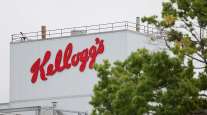YRC Net Loss Jumps 26%; CEO Welch Cites ‘Progress’
This story appears in the Nov. 14 print edition of Transport Topics.
YRC Worldwide Inc.’s third-quarter operating loss jumped 26% to $23.7 million from $18.8 million a year earlier because of higher expenses.
The less-than-truckload carrier’s operating loss widened despite a 12% revenue gain of $139.6 million to $1.28 billion. The third-quarter 2011 results included a profit of $12.4 million at the regional unit, a loss of $14.3 million at the national unit, a $2.7 million truckload unit loss and $19.1 million in corporate expenses.
“We have made a lot of progress,” James Welch YRC’s chief executive officer, said on a Nov. 4 conference call. “We still have much to do. I am not at all satisfied about where we are at and how we are performing, but we will get better.”
In the conference call, Welch outlined plans to give each operating unit a clear, separate identity and to refocus the business on less-than-truckload and away from logistics.
YRC’s net loss, including interest and costs related to a July restructuring was $177.9 million in the third quarter, nearly triple the $61.7 million in last year’s third quarter.
YRC completed a restructuring during the quarter that left creditors and the Teamsters union owning 97.5% of the company, but most other LTL carriers reported operating income growth of 10% or more. Those carriers included FedEx Freight, ABF Freight, Con-way Freight, Old Dominion Freight Line and Saia Inc.
From an operating standpoint, YRC’s regional business im-proved its operating ratio to 95.2 from 97.0, posting a 14% increase in revenue to $404.8 million. Operating income rose 25% to $12.4 million.
On the other hand, the national LTL narrowed its third quarter loss to $14.3 million from $16.4 million, bringing the operating ratio down to 100.9 from 101.6. Revenue was 11% higher at $841.6 million.
“I am not happy with how the network is running at YRC,” Welch said. “The regionals are in good shape.”
In addition to the efforts to rebuild YRC’s national LTL operation, company officials also disclosed more details of plans to buoy the company’s stock price.
Jamie Pierson, chief financial officer, whose appointment was announced earlier this month, said the company plans to do a reverse split of its stock with a ratio ranging between 1 new share for every 50 outstanding and 1 new share for every 300 outstanding. The move will be made no later than mid-December, he said.
Based on shares trading last week at around 6 cents, the reverse split would produce a stock price of between $3 and $18 a share.
Welch also emphasized a strategic change meant to give regional and national carriers their own separate identity instead of being branded as YRC.
“Each of the operating company presidents not only embraced this change but have been asking for it,” Welch said, saying that in the past there had been too much interference from the holding company in each unit’s operations.
To illustrate his point about company structure, Welch noted that the sales organization was the responsibility of the holding company while field operations were overseen by each separate LTL business. The result, he said, was a lack of coordination and communication.
“There will be no YRCW way of doing business,” he said. “Teams under a corporate umbrella work together better when it is their choice and not directed by the holding company.”
He also stressed the need to concentrate on the core LTL business instead of the company’s previous focus on activities such as logistics. YRC sold off logistics assets in 2009 and 2010 and no longer includes logistics in its financial reports.
“Yes indeed, we are in the freight business,” Welch said. “We are going to work like hell to give the customers the level of service they deserve.”
In other developments, YRC deposited $23 million in union pension funds, resuming contributions that had been suspended for about two years.
Welch also noted that fourth-quarter freight trends so far are above 2010 levels for the company.




